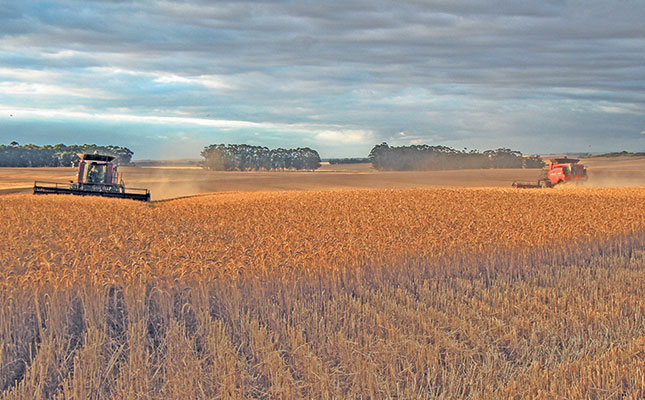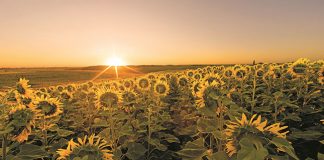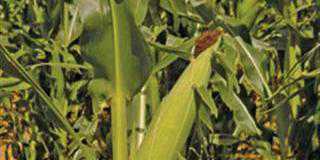
Photo: FW Archive
Tell us about your career in agricultural economics.
I obtained my BScAgric and Honours in Agricultural Economics at Stellenbosch University [SU] in 1981, followed by an MScAgric from Natal University (Pietermaritzburg) during my second year of military service in 1983, and a PhD (Agric) from SU in 1991.
I started lecturing in the Department of Agricultural Economics at SU in 1984 when I had to choose between full-time farming or part-time farming in combination with an academic career. I chose the latter.
Due to my interest in farmland value, I qualified as a professional property valuer and do farm valuations once in a while.
What courses does your department now offer?
Like other departments of the AgriSciences Faculty at SU, it offers a four-year BScAgric, with agricultural economics as one of the majors, in combination with subjects such as agronomy, horticulture, animal science and viticulture.
Agricultural economics also combines with subjects offered by the Economic and Management Sciences Faculty, such as economics, financial accountancy, financial management, marketing management, investment management, and logistical management, either as part of the four-year BScAgric, the three-year BCom (Agricultural Economics), or the three-year BAgric (Agribusiness Management).
Ten years ago, we introduced a combination of agricultural economics and food science to train managers for a career in the food processing industry or to enable them to process their own commodities on their farms.
The department also offers an honours programme in agricultural economics and management following the three-year degrees, a master’s programme following the four-year degree, and a PhD or DSc programme after the master’s degree.
Why is the agricultural economics profession important?
Agricultural economics is the only social science offered by the Faculty of AgriSciences at SU. In essence, it’s economics and financial management applied to agriculture.
The combination of agricultural economics with the plant and livestock production courses provides knowledge and insight into the systemic nature of agribusiness management in farming, farm inputs, agri-processing and marketing.
It combines production and financial aspects in the decision-making process with a focus on sustainability and competitiveness.
Agricultural economics also provides analytical skills and insight for agricultural policymaking and analysis, including international trade policy.
What have been key developments in agricultural economics during your career?
From the early 20th century, production economics as a sub-discipline of agricultural economics began providing important principles for optimal use of agricultural inputs to maximise profit.
Technological progress caused agricultural output growth to exceed population growth in many industrialised countries, putting pressure on agricultural commodity prices; so much so, that farm income shrank in those countries (the so-called ‘farm problem’).
Agricultural economists were actively involved in policymaking to implement farm income support policy measures such as fixed prices and quotas. Later, they analysed the disruptive effect of these measures on resource allocation, paving the way for a free-market environment.
Agribusiness and agricultural supply chain management and environmental economics became more popular as the demands of modern, complex supply chains and environmental degradation, due to unsustainable production intensification, became clearer.
What factors are shaping agricultural economics now and in the foreseeable future?
Increasing complexity in both the agricultural policy and management domains requires policy analysts and agribusiness managers to become more specialised. A clearer distinction between the two streams in agricultural economics is needed.
In future, policy analysis-oriented modules will cover more complex analytical methods and so-called ‘big data’ analysis. The mathematical and statistical components supporting economic analysis will be expanded.
On the agribusiness management side, management accounting will be added next year as an elective to complement agricultural economics, and additional subjects needed for the international Chartered Institute of Management Accountants qualification, such as mercantile law, taxation and auditing, will be offered as electives.
Knowledge of physical and biological resources is integrated with an economist’s way of thinking in terms of optimisation, identification of the most limiting factor, and seeing the bigger picture for effective strategic positioning.
The addition of management accountancy and supporting subjects should contribute competencies such as the ability to interpret financial statements and develop business plans, skills required by a production manager, financial manager or general manager of an agribusiness company.
Agricultural economics is already seen as an important subject to combine with the crop and livestock production sciences in order to develop the managerial capacity of graduates.
The challenge for our department is to be aware of growing needs in the agribusiness environment.
As an example, experienced managers requested a course that combined agronomy, soil science, animal science and agricultural eonomics for farmers and input suppliers involved in pasture/small grain-based livestock production systems. The course was created four years ago.
Is agricultural economics a popular career choice?
Approximately 400 students graduate annually in South Africa with agricultural economics as a major. SU contributes approximately 15% of this total.
The agricultural economics programme also delivers 15% of the total number of graduates of the AgriSciences Faculty of SU.
We see a growing awareness of the importance of agricultural economics among students in other programmes, for example crop science, animal science, viticulture and oenology, and food science.
As it’s difficult to fit agricultural economics modules into the timetables of the other programmes, we’re developing an online module in agribusiness management for students in the other programmes that they can study in their own time.
How does your department ensure that its courses remain relevant?
We continually re-evaluate the ever-changing requirements of the policy and management domains, inter alia with opinion surveys and discussions with experienced practitioners, to orientate ourselves and create or adapt courses to address these needs.
International co-operation has to be planned carefully to find common ground, due to differences between policy issues in South Africa and Northern Hemisphere countries.
Active co-operation with researchers abroad helps everyone keep track of the latest research themes and methods, allows for postgraduate student exchange, and provides access to data for comparative studies.
Phone Prof Theo Kleynhans on 021 808 4758, or email him at [email protected]. Visit
sun.ac.za/english/faculty/agri/agricultural-economics.











